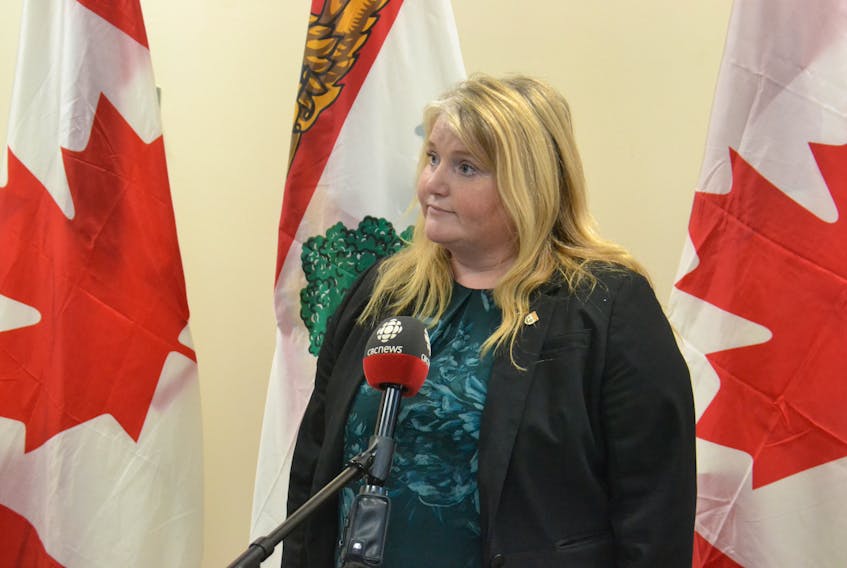CHARLOTTETOWN, P.E.I. — Martin Ruben
Guest opinion
In my last guest opinion, I discussed my belief that the Government of Prince Edward Island is systemically maladministered. Publicly available information provides strong evidence that the provincial government is not transparent or accountable for how it spends public funds or how it makes decisions regarding the delivery of programs and services.
The concept of government’s accountability for the use of public funds is critical when we look at how our provincial government carries out its responsibilities.
A good place to start this analysis is with the public accounts committee. This committee is responsible for reviewing the auditor general’s reports, and through hearings with government administrators, holds government to account. The committee’s statement of purpose and values reads that it “is dedicated to improving public administration in partnership with the auditor general.” It does so by examining “the administration of government policy, not the merits.”
The committee met with provincial government officials in February 2021 to discuss the implementation of the Purchase of Goods Act that guides the public procurement of goods. During that meeting, it became clear to the committee members that public procurement in P.E.I. is not structurally designed to promote value for money. For example, the committee heard that the provincial procurement law deals only with the purchase of goods; the acquisition of services by government is carried out under a treasury board policy.
This means there is no meaningful legal framework for the activities of this important function of government; a significant gap in governance that would ensure the effective use of public funds.
Moreover, there appears to be no clear strategy for public procurement. The strategy could be linked to other government objectives related to, for example, economic and workforce development. The official response to these questions indicated that a lack of resources has prevented the implementation of an adequate procurement function. Apparently, there aren’t sufficient resources to implement the changes contained in the Purchase of Goods Act enacted in November 2020.

To provide for good public administration of procurement, the government should have strong legislation supported by regulations, policy and the capacity to develop management practices that ensure the best value for money is spent in the acquisition of goods and services, while also mitigating the risk of maladministration.
This is important because the government must acquire a significant amount of goods and services in order to carry out its business. Because the government does not appear to track information about how much it purchases in goods and services — information that should be publicly provided — it is not possible to state here how much it spends annually. Suffice to say, however, its purchases have a significant impact on the local economy. The auditor general estimated, for example, that the government spent approximately $38 million on the purchase of goods in the fiscal year ending March 31, 2018. There is no estimate for the amount spent on the acquisition of services.
The auditor general reported on an audit of the procurement function in 2019 and identified a significant number of deviations from the requirements in the Purchase of Goods Act and regulations. For example, one-third of the 33 transactions selected for audit did not follow the required competitive bidding process. Moreover, the scope of this audit was limited to assessing compliance with the law and regulations at the time, and did not look at the effectiveness of the government’s overall procurement function.
There is maladministration in the public procurement function because its design allows it to happen.
Public servants carrying out the procurement function in P.E.I. may be unwittingly wasting public funds or making inappropriate decisions because there appears to be no system in place to ensure against it. We find this type of approach to government administration in many Third World countries that don’t separate the public procurement function from the influence of politicians and don’t implement strong administrative practices.
The evidence of systemic maladministration occurring in the provincial government is complex and requires attention by the legislative assembly. There should be a review and strengthening of the laws, such as the Purchase of Goods Act, along with a resolve to implement and follow the laws that have passed, to ensure they promote the effective use of public funds. Other improvement suggestions include the development of a procurement strategy, implementation of modern procurement practices and techniques, requiring business cases that support decision making, implementing an internal audit function, and making the processes more transparent for how procurement decisions are made.
In Newfoundland, for example, it was noted in the public accounts committee meeting that a separate agency reporting to the legislative assembly was created to manage public procurement. This arrangement could ensure that ministers of government departments are prevented from influencing or appearing to influence public procurement decisions.
The development and operation of an effective public procurement function should be a priority for the P.E.I. government; rooting out the maladministration and ensuring that there is fairness and transparency for individuals and businesses that contract with our government.
Martin Ruben runs a consulting business in Victoria-by-the-Sea and has a background in public sector and not-for-profit corporate governance. This is the second in a series of opinion pieces on the topic of government accountability. READ: https://www.theguardian.pe.ca/opinion/local-perspectives/guest-opinion-accountability-missing-in-public-sector-564198/









